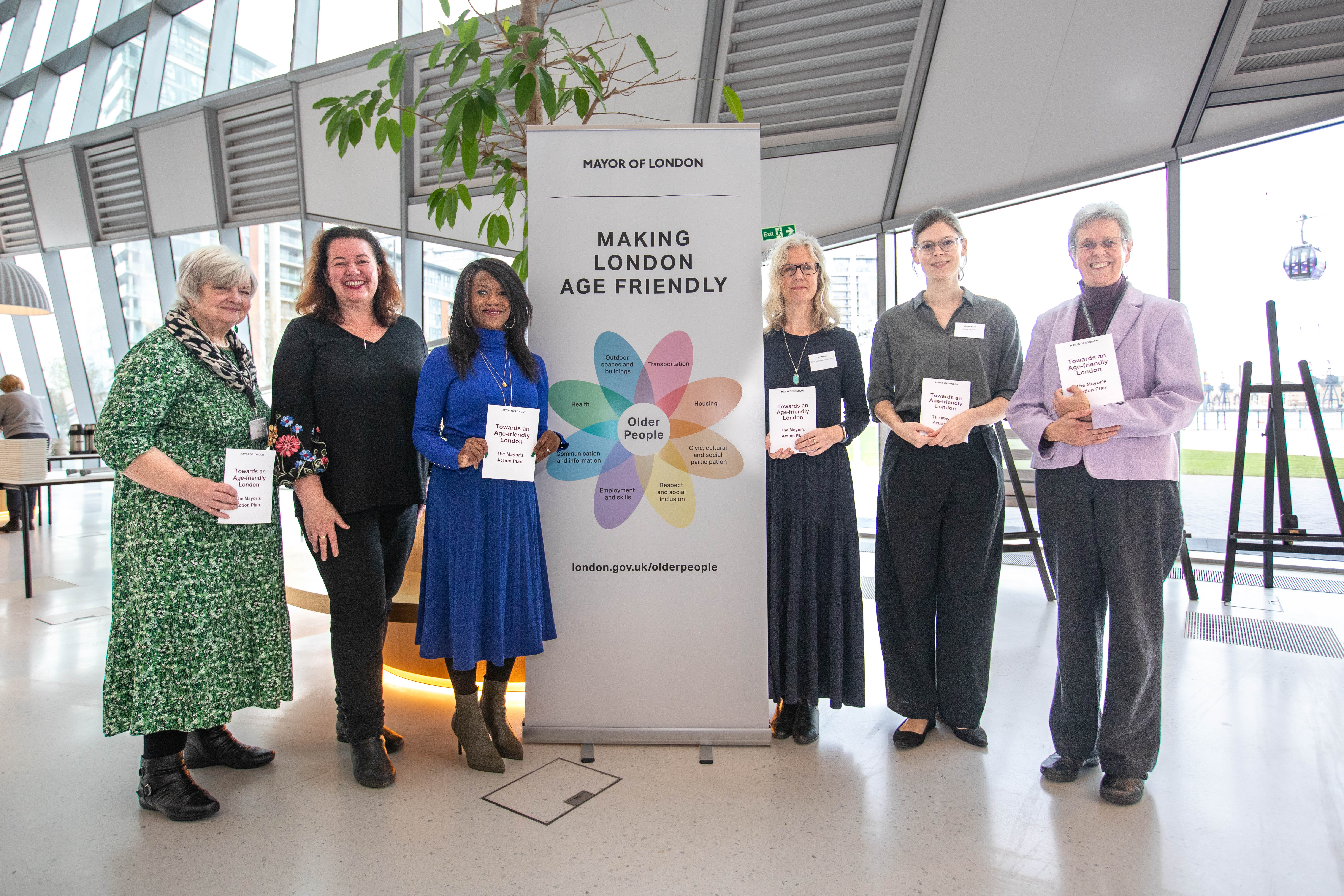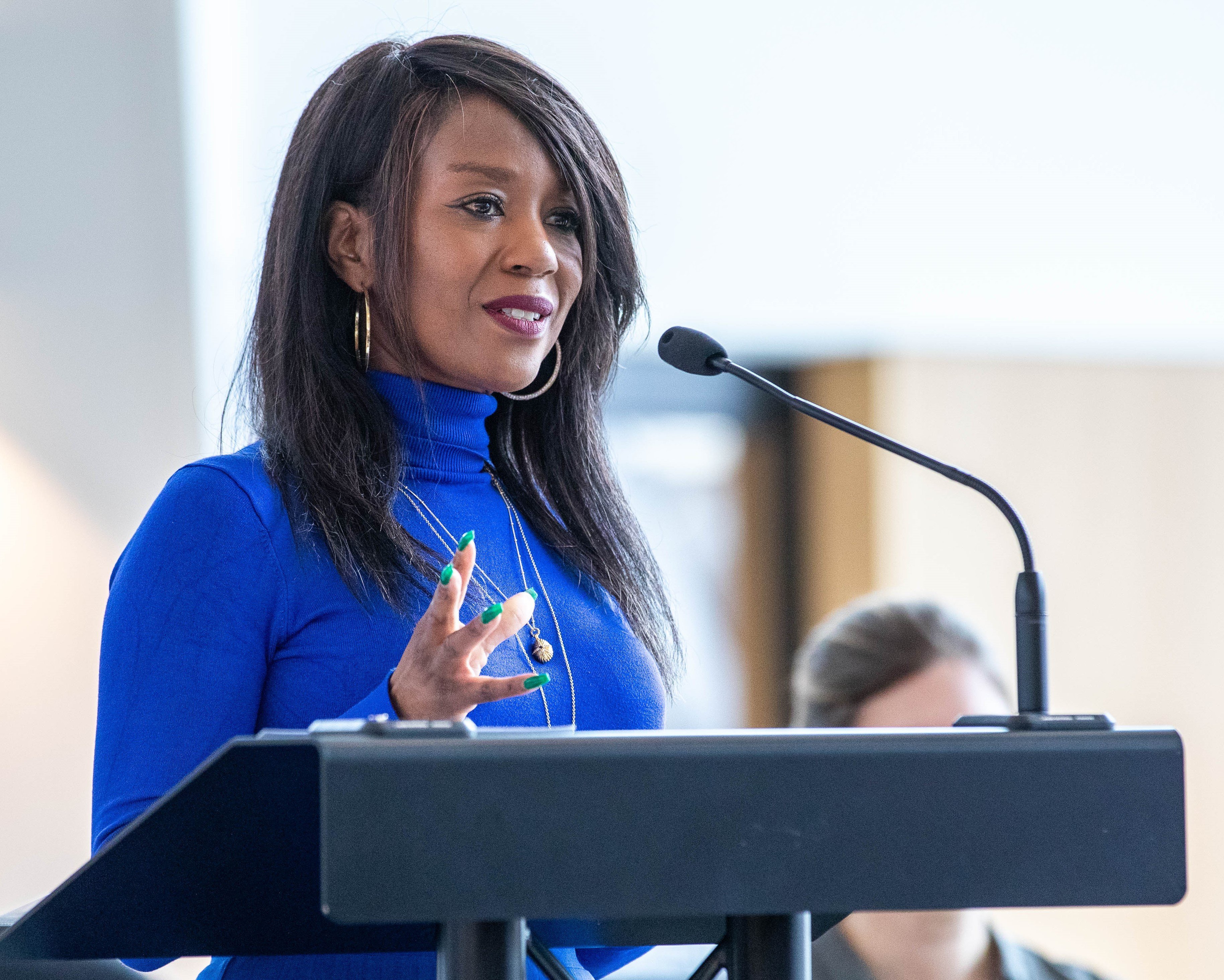Making London More Age Friendly

Published on 23 November 2023 11:57 AM
Making London more age-friendly
By Dr Debbie Weekes-Bernard, London’s Deputy Mayor for Communities and Social Justice
This week I was proud to launch the Mayor of London’s Age Friendly Action Plan. It sets out the Mayor of London, Sadiq Khan’s, vision to make London the best city in the world in which to grow old.
London is already leading the way in becoming age-friendly as part of the World Health Organization’s (WHO’s) Global Network of Age-friendly Cities and Communities.
The Age Friendly Action Plan, the result of our collaboration with a wide network of partners, is based on the WHO’s framework. It shows what the Mayor is doing to support older Londoners in eight important areas: housing, outdoor spaces and buildings, transportation, civic, cultural and social participation, employment and skills, health, communication and information and respect and inclusion.
Housing
We of course all want the capital to be a city where older Londoners can live well at home rather than struggling to make ends meet. The Mayor’s Pension Credit campaign has supported this aim by helping older Londoners receive £8.4m in unclaimed Pension Credit. Receipt of Pension Credit has also opened up entitlements to Cold Weather Payments and Warm Home Discounts for pensioners in the capital. Our Community Housing Fund is also developing housing to meet the needs of older LGBTQ+ Londoners.
Outdoor spaces and buildings
In our consultations older Londoners also told us they wanted public spaces to be age-friendly with more toilets and spaces to rest. The Mayor has increased the number of free, publicly available toilets through the support of the Good Growth Fund
Transport
We want London to be a city in which older people can easily get around, so we have protected the Older Persons’ Freedom Pass and 60+ London Oyster photocard travel concessions. We have also worked hard to keep fares, particularly bus fares, as low as possible for older Londoners who often rely on buses to get around.
Civic, cultural and social participation
Older Londoners told us they wanted to be listened to and be able to participate in the civic and cultural life of the city. We have worked with the Alzheimer’s Society to launch the world’s first Dementia Friendly Venues Charter and transform London’s cultural venues.
Employment and skills
The paid work of older Londoners contributes significantly to the city’s economy. In October this year, the Mayor signed the Age-friendly Employer Pledge, recognising the importance and value of older workers to London’s economy. We are urging other employers to do the same and commit to creating more age-friendly workplaces for the million and more Londoners aged 50 or older in employment.
Communication and information
Get Online London is helping older Londoners to gain the digital skills they need and reduce digital exclusion. A new service, funded by the Mayor and delivered by The Cyber Helpline, was launched last month to support victims of cybercrime in London. Older Londoners who have been victims of crimes, such as online scams or hacked bank accounts, can now get help from a cyber-security expert.
Our success in making London more age-friendly relies on cooperation, particularly with our boroughs. Seven London boroughs are already members of the WHO’s network and we’re keen to help all boroughs in their commitment to supporting older Londoners.
I am proud of what we have achieved in making London age-friendly, but there is more to do. This action plan demonstrates our commitment and determination to ensure London is an age-friendly city. Working together, we can continue to build a better London for everyone – a city that is safer, fairer and more prosperous for all our communities.
Dr Debbie Weekes-Bernard, London’s Deputy Mayor for Communities and Social Justice

